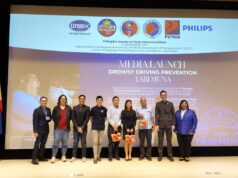Gov’t to conduct study on scope of drug problem
By Arjay L. Balinbin
Reporter
THE DANGEROUS Drug Board (DDB) is set to conduct a study on the extent of the drug problem in the country “amid calls for evidence-based indicators of the success of the anti-drug campaign” of President Rodrigo R. Duterte’s administration, according to DDB chairman Catalino S. Cuy.
The study, Mr. Cuy said in a statement posted on the DDB website on Saturday, will “entail the conduct of a census instead of a survey to provide a real picture of the drug situation.”
The DDB said reports from all law enforcement agencies and intelligence information “will also be included and integrated in the data analysis.”
“There were previous studies with similar intentions but the results of which did not include data from law enforcement agencies. This time, we will make sure that these will be included and integrated in analyzing data and coming up with statistical figures,” Mr. Cuy was quoted as saying.
“What we want is an actual census to provide the real picture of the drug situation in the country,” he added.
He further said that his agency is coordinating with the Philippine Statistics Authority (PSA). “The DDB and the PSA have started the talks for the conduct of this activity.”
Section 7 of Executive Order (EO) No. 66, which Mr. Duterte signed in October last year, mandates the conduct of a nationwide survey to determine drug abuse prevalence in the country.
The President’s Order also directed the PSA to provide full technical assistance to the DDB.
All government offices, departments, bureaus, agencies and offices, including government-owned or -controlled corporations and state universities and colleges, were also directed, according to the EO, to implement the Philippine Anti-Illegal Drugs Strategy (PADS), which the DDB formulated to address the drug problem in the country.
The DDB’s PADS “outlines the balanced efforts of the government to strengthen its campaign against prohibited drugs and their precursors, and contribute to international efforts to counter the worldwide illegal drug problem.”
The agencies mentioned, including Local Government Units (LGUs), were further directed to “formulate and adopt their respective Drug-Free Workplace Programs, and conduct authorized drug testing among their respective officials and personnel….”



